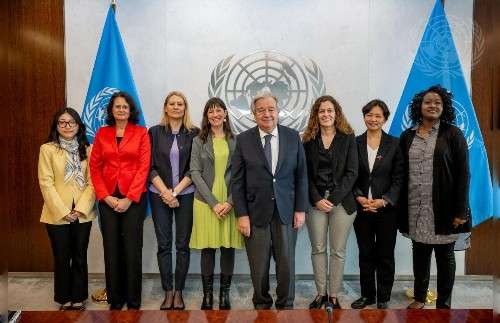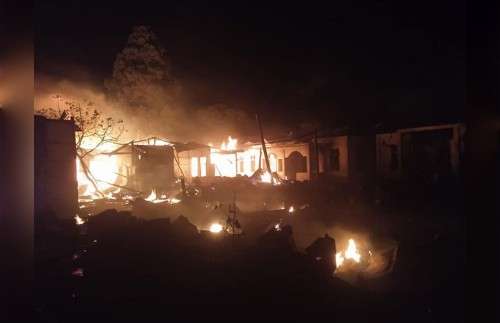Russia’s charities and NGOs face an acute funding crisis, as businesses and individuals cut back spending and lockdowns disrupt social care work
Jake Cordell/The Moscow Times

Yekaterina Shergova is scared. Her sick children’s charity Podari Zhizn — Russian for Gift of Life — has already seen donations drop since the start of the coronavirus outbreak and she fears she will have to turn down requests for medical support, care and drugs for children with cancer and other life-threatening diseases.
Shergova, 45, understands why people might not have spare cash to donate at a time of job losses, wage cuts and mass uncertainty about the future. But without funds, she fears the situation could quickly become “catastrophic.”
“With all the bad news, now is the time when you want to close yourself off and stay home, be near your loved ones, engage in self-education, cook, watch TV shows and hope that everything works out,” she said.
“But cancer does not go into quarantine … and I am terrified that some children who we are helping right now might not survive until this situation ends.”
The coronavirus has plunged Russia’s charities and non-profit organizations into crisis. With quarantine regimes being rolled out, and the economic toll of the pandemic mounting, they face both physical restrictions on their work and an acute funding crisis as individuals and organizations slash their charitable donations.
Podari Zhizn expects to see a 100 million ruble ($1.27 million) hit to its budget this year, equivalent to more than a month’s donations to clinics and for life-saving medicines. That’s better than most, Shergova said, as it has reserves and can keep going for a while.
Smaller charities aren’t so lucky.
Mitya Aleshkovsky, co-founder of fundraising platform Nuzhna Pomosh, or Help Needed, estimated that only 5% have enough resources to cover a three-month disruption to their incomes.
He shares Shergova’s worries about how bad the situation could become.
“We’re now only at the beginning of the crisis. Things are getting worse every day. Many of my colleagues in Russia’s regions are already closing programs and cutting budgets.”
Overall, charitable donations could fall by 30-40% this year, Aleshkovsky fears.
What that means in cash terms is unclear, as estimates of the size of Russia’s charitable sector vary widely. For individual organizations, the picture is stark: Less resources at a time when vulnerable groups will be needing more support than at any point in the last decade.
“I am sure that in the coming months, the number of people in need is only going to grow,” Grigory Sverdlin, director of homeless charity Nochlezhka, told the Meduza news site.
Nuzhna Pomosh saw a 60% fall in daily donations last week.
“That was in the middle of the hysteria when nobody knew what to do and everybody was trying to buy toilet paper and food supplies. We’ve recovered from that a little bit now, but donations are still down. It’s going to be much worse next month, and maybe even after that,” Aleshkovsky said.
As early as two weeks ago, when Russia was still operating with a degree of normality and the number of official coronavirus cases was in the hundreds, not thousands, half of all NGOs surveyed by the Russian Donors’ Forum had already seen a o9fall in donations, and a third of donors said they were “reviewing” their budgets for charitable giving.
The funding crisis could be exacerbated by the nature of Russian charitable donations. More than 40% of Russians who donated to charity in 2018 did so in cash at an offline event — all of which have now had to be cancelled.
Some of Russia’s largest charitable organizations and corporates have responded to the crisis by boosting their support, according to Veronica Misiutina, head of philanthropic programs at Skolkovo business school. However, charity workers say this does not match the fall in donations from individuals and smaller businesses.
“There has obviously been a step up in funding urgent anti-virus programs and relief work. In the long-run, inevitably, due to the economic situation, there will be a correction of how much donors are spending and in what areas,” Misiutina told The Moscow Times.
“Everybody is scared, waiting, and not doing anything. All other social issues will become much more painful for Russian society. The number of problems will grow every day, and we really have to do something about it,” Aleshkovskiy said.
Shergova adds: “Most NGOs are covering holes that the government isn’t. We are searching for ways to solve problems that the government hasn’t fixed. If we didn’t exist, we would lose even more people — and not just from the coronavirus.”
The crisis in the sector is not just about a dive in income. A strict quarantine in Moscow and other cities means charities will struggle to provide face-to-face support for vulnerable groups, particularly in the care sector or for people who don’t have access to the internet.
“Theoretically, some things can be transformed into online activities, such as talking to senior citizens who are in care facilities. But some activities which require physical contact — non-medical help, for instance — will of course have to be postponed,” said Misiutina.
A survey of NGOs by the Charities Aid Foundation found more than a third of them said it would be impossible to provide their services in an online or digital format.
These non-financial effects of the quarantine are at their worst in the health sector.
For instance, blood donations have dropped to critical levels in Moscow, as people stay at home and are scared of going to hospitals, with some clinics reporting an 80% fall.
The worldwide shutdown of factories and disruption to supply chains could also lead to a shortage of cancer medicine, Shergova said.
“We might fall back to the time when we couldn’t buy modern medicines for children with cancer. Back then the main problem was that we didn’t have money. Right now, we can’t buy them because companies abroad have stopped manufacturing this medicine … That means more children will die. It’s terrifying.”
Even when medicines can be found abroad, the crash in the value of the ruble has made them more expensive, the Pomagi Rebyonky, or Help a Child, foundation highlighted.
Charities also say there have been no signs of government support for them so far during the crisis, and concerns that organizations will simply collapse are mounting.
“The work of non-profit organizations is under threat. Because of the crisis, financial support for our work is declining, and while the government has decided to support small businesses, there is no relief for NGOs,” the Deti Nashi, or Our Children, foundation wrote on its VKontakte page.
Charities launched a new campaign Monday to plead with the public not to cancel donations despite the economic hardship.
“The development of charity is the best thing that has happened in Russia over the past ten years. And the best thing we can do now for the future of Russia is to get together and save NGOs,” said its coordinator Anastasia Ryabtseva, who works for the Tyopliy Dom, or Warm House, charity which supports low-income families.
Fundraiser Aleshkovsky said he is hoping that Russia understands the importance of NGOs for society.
“I am really scared at the moment, I am really scared and I don’t know what to expect or what will come next,” he said
This story was originally published by The Moscow Times Reprinted with the permission of The Moscow Times @Stichting 20 Oktober all rights reserved
VOA Asia Weekly:The Story of an Exiled Chinese Journalist
Report Warns,Climate Change Set to Cut Average Income by 19%
Timor-Leste Seeks Economic Lifeline as Oil Wealth Dwindles
South Africa Prepares to End Lion Hunting in Captivity
UN Secretary-General Meets with Working Group on Discrimination Against Women and Girls
On Both US Coasts,Pro Palestinian Encampment Protesters Hold Ground
Philippine Police Arrest 3 Suspects Over On-Air Killing of Broadcaster
In Tibet, Parents Plead for Children to Help Collect Caterpillar Fungus
Subscribe Our You Tube Channel
Fighting Fake News
Fighting Lies















